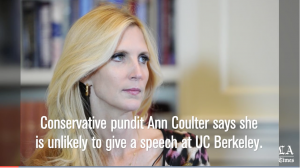Navigating the High Seas of Media in the Modern Age
Fairness and equality are two key ingredients for a healthy democracy. In modern society, these elements are increasingly threatened by widespread media that can — at times — suppress ideas and promote a subversive agenda that challenges fairness and the very sense of what’s truth and what’s “fake news.” There are three components to a healthy democracy: popular sovereignty, political equality and political liberty. When any of these three pieces are missing, a healthy democracy is difficult to sustain. Our current culture of challenging freedom of speech is a direct threat to the health and vitality of our democracy, and it is a wake up call for us to seek truth beyond the press, beyond the possibility of alternative agendas.
The threat seemingly knows no partisanship: it challenges the truth of both conservatives and liberals alike. Conservative speeches planned at universities throughout the country are being cancelled at an all-time high. A recent example is the cancellation of an Ann Coulter speech at the University of California Berkeley, which — after great debate and controversy — was cancelled. “It’s sickening when a radical thuggish institution like Berkeley can so easily snuff out the cherished American right to free speech,” Coulter said. The threat looms large on both sides of the aisle as well. While most of us use social media as a way to engage with our friends and the world at large, others with a more hidden agenda may not. Facebook is one of many social media sites that is currently under investigation for its platform being manipulated with extreme conservative messages during our recent national election. Facebook is being investigated for both implanting digital team staff members from Trump’s campaign, as well as selling around 3,000 Facebook ads to fake accounts that linked to Russian propaganda groups.
Although these threats may make it seem as though we live in a corrupt bureaucracy rather than a thriving democracy, our liberty and equality has managed to survive and — at times — thrive. The health of our democracy is supported in large part by the vast number of persons that are deeply concerned about this growing threat, and who are committed to taking action to protect our fundamental right to free speech. In fact, a key reason for the successful political journey of our president, Donald Trump, is his finely crafted use of social media. The very same freedoms that foster manipulated messages on a massive scale have also enabled a non-politician to rise through the political ranks to leader of the free world. It can easily be argued that Donald Trump’s freedom to tweet and post whatever ideas were on his mind is the reason he became president, and that no other nation in the world would be able to elect a leader like Trump.
While the threat of extreme media is our new reality, we should not despair. Though it’s not perfect, for the most part what we are witnessing is democracy in the age of immediate and widespread information – and the ultimate challenge lies in our ability to manage and navigate these new, uncharted waters without damaging the very principles that we hold most dear.
https://www.wired.com/story/robert-mueller-russia-investigation-facebook/
http://www.latimes.com/local/lanow/la-me-coulter-berkeley-20170426-story.html
